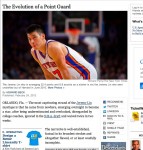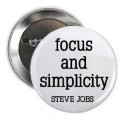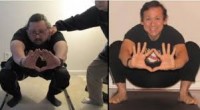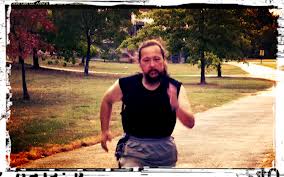Jeremy Lin and Wildly Important Goals
 Today, Jeremy Lin is on top of the world. He’s starting NBA games, television coverage, ESPN magazine, invitations to all the top events in New York City, and more fame and status than ever thought possible. It  all adds up to a life that seems perfect. One that hopefully continues for the entire season. One that could end up getting him a very large contract at the end of the NBA season. And perhaps most importantly, one that could end up inspiring millions of people about achieving Wildly Important Goals more than ever before.
Today, Jeremy Lin is on top of the world. He’s starting NBA games, television coverage, ESPN magazine, invitations to all the top events in New York City, and more fame and status than ever thought possible. It  all adds up to a life that seems perfect. One that hopefully continues for the entire season. One that could end up getting him a very large contract at the end of the NBA season. And perhaps most importantly, one that could end up inspiring millions of people about achieving Wildly Important Goals more than ever before.
The definition of a goal is: (1)Â the result or achievement toward which effort is directed; aim and (2) the terminal point in a race. We all have goals we want to achieve. We all have terminal points and results that we want to happen. This article from the New York Times talks about Lin’s goals and how he decided to work to achieve them.
One of my favorite quotes from the article says, “Jeremy Lin’s rise did not begin, as the world perceived it, with a 25-point explosion at Madison Square Garden on Feb. 4. It began with lonely 9 a.m. workouts in downtown Oakland in the fall of 2010; with shooting drills last summer on a backyard court in Burlingame, Calif.; and with muscle-building sessions at a Menlo Park fitness center.”
Jeremy Lin wanted more than the status quo. He wanted to take advantage of the opportunity when it came. He wanted to work hard when nobody believed in him. Another quote says, “Quite simply, the Jeremy Lin who revived the Knicks, stunned the N.B.A. and charmed the world — the one who is averaging 22.4 points and 8.8 assists as a starter — is not the Jeremy Lin who went undrafted out of Harvard in June 2010. He is not even the same Jeremy Lin who was cut by the Golden State Warriors on Dec. 9.”
In short, Jeremy Lin’s story is one of having a Wildly Important Goal, and then doing everything he could to make it happen. “Beyond the mystique and the mania lies a more basic story — of perseverance, hard work and self-belief.”  If you love what you’re doing and work incessantly to achieve it, then prepare to see it come to pass. If you are able to dream of the impossible, it just might happen.
CLICK HERE to read the article in its entirety.
—
Wildly Important Goals
 One thing I’ve learned in graduate school is that its important to have goals. Goals about what you want to accomplish, what industries you want to work in, which people you want to meet, and which classes you want to take. That’s because with goals, you have a clear sense of what’s important and you can make sure that you get a lot more of those things done. But sometimes, even having goals isn’t enough if you have too many of them. And so often times you need one goal that’s far more important than the rest.
One thing I’ve learned in graduate school is that its important to have goals. Goals about what you want to accomplish, what industries you want to work in, which people you want to meet, and which classes you want to take. That’s because with goals, you have a clear sense of what’s important and you can make sure that you get a lot more of those things done. But sometimes, even having goals isn’t enough if you have too many of them. And so often times you need one goal that’s far more important than the rest.
One way I like to think about it is with the term WIG … otherwise known as Wildly Important Goals. I use the term WIG to describe those things that I’m most interested in pursuing. The game changing ideas that you want to relentlessly work toward for as long as necessary. The ones that not only keep you up randomly until 3am when everyone else is sleeping but that also wake you up at 5am when the sun hasn’t risen yet. In business school, they’re the ones you skip the best party of the year to work on when everyone else is out.
Over the past two to three years, I’ve done my best to always have a WIG.  I had one coming into the JD-MBA program in law school my first year. I had one this year at Kellogg and pursued it even in spit of core classes and recruiting. And I have a new one now that I am working on for twelve to fifteen months.
In my view, some things in life are worth spending the extra time on. Fine-tuning every detail for. Becoming an expert at. And giving it your all.
Because as you continue to progress in your career, the competition gets harder and the people get smarter. And as a result, it become much harder to achieve all your goals. Especially the worthwhile ones that the smartest people pursue. So if you want to do well, sometimes you have to hone in. And if you want to hone in, then you have to make a point to pay special attention to it, especially in the midst of all the chaos surrounding you at school and at work. One way to do that is by identifying an important goal well ahead of time and then working relentlessly to achieve it.
That’s what I mean by WIG.
So … what’s your WIG?
What woke you up today at 5am? And will you be up at 5am tomorrow working on it again?  I’m sure your competition will be.
Forget the Resolutions. What’s Your Wildly Important Goal?
 Everywhere you look today, people are talking about New Year’s resolutions. Ones they made last week and some they’re adding this week. They’re talking about how much weight they want to lose. What activities to get involved in. And how this year is going to be different from last year. But for most, New Year’s resolutions are usually a steep uphill climb. Things that most people don’t finish. Given that, I propose that it’s better to have Wildly Important Goals than resolutions.
Everywhere you look today, people are talking about New Year’s resolutions. Ones they made last week and some they’re adding this week. They’re talking about how much weight they want to lose. What activities to get involved in. And how this year is going to be different from last year. But for most, New Year’s resolutions are usually a steep uphill climb. Things that most people don’t finish. Given that, I propose that it’s better to have Wildly Important Goals than resolutions.
What is a Wildy Important Goal you ask? In a recent blog post about WIGs I said I use the term WIG to describe those things that I’m most interested in pursuing. The game changing ideas that you want to relentlessly work toward for as long as necessary. The ones that not only keep you up randomly until 3am when everyone else is sleeping but that also wake you up at 5am when the sun hasn’t risen yet. In business school, they’re the ones you skip the best party of the year to work on when everyone else is out.
In part, it’s because there’s only so much time we can bring to each commitment and that having too many resolutions will dilute” your effort. Further, having too many goals also means you’re not able to focus as well.
In a recent post by fellow blogger Erica Hawan, Erica talked about how great leaders of our time know how tofocus on what matters most. She gave the example of Jim Collins. who rejected what seemed like great career moves to go back to his hometown Boulder, Colorado and work on the sole question of ‘what makes great companies tick’ and on his books. In the end, he came up with a few masterpieces that we’ve all heard of:  Good to Great, Great By Choice, How the Mighty Fall and Why Some Companies Never Give In.
In the same spirit, I propose that it’s more important to identify game changing goals than to set resolutions where there aren’t any real consequences for not achieving them. Where there’s no real skin in the game. So find those game changing goals and pursue those relentlessly. Move the other things to the side and put a stake in the ground. Whether it’s admissions to your top school. Finding a new job. Winning a competitive fellowship. Starting a new company. Or getting involved in that game changing nonprofit.
And so that’s my challenge for you for 2012 — Clear the clutter of resolutions. Think about what matters most. Write down your Wildly Important Goals. Draw out your plan and figure out how to make it happen!
Because in the end, the best leaders know that it’s important to not only make goals … but also to make goals that are achievable and that you’re wildly passionate about.
Good luck!
Finding the edge
 In my Saturday yoga class, our instructor started the class by mentioning the importance of finding your edge. It reminded me of one of my old posts as well as got me thinking about the importance of edges.
In my Saturday yoga class, our instructor started the class by mentioning the importance of finding your edge. It reminded me of one of my old posts as well as got me thinking about the importance of edges.
In yoga one of the most important parts of practice is finding your edge. That means understanding just how far to go into a pose. Â Because if you don’t go far enough, then you won’t be challenged, you won’t get the full stretch, and as a result you won’t get the opening that you need. On the other hand if you go too far, that increases the possibility of pain and injury. Â And it’s more likely than not that you won’t make it through the full class. Somewhere between these two points is the perfect balance:Â your “edge.”
In our professional lives, we have the same opportunity. Â We can find the edge to make sure we can put our best work in the world. Â By working harder than ever to attain our wildly important goals but knowing when to pull back and avoid getting in over our head. By understanding many new projects we can work on in our jobs before quality slips. Understanding when to make something perfect or when good enough is enough and to just be done.
With more information and more possibilities than ever before it’s more important than ever to understand our edge and not go further. Â If we find it, then we’ll get better and one day the edge will be further and further out than we ever imagined. On the other hand if we never find it, then we won’t move at all. Â And not only will we be stuck, we’ll also be left behind while the edge goes further and further out.
Just a thought.
Investing your Time
 Your time is limited. And it’s time you start seeing your time more like an investment.
Your time is limited. And it’s time you start seeing your time more like an investment.
When you decide to sleep in or relax for the full day. Â When you decide to stick it out at a job because it’s easy or because it pays well. And when you decide not to give it your all in any activity you’re doing.
That’s time you may never get back. It’s time you could have invested working on your art, perfecting your craft or working toward one of your wildly important goals.
It’s time monitored our investment a little more often.
That project that we are working on. Is it worth it? Â Is it meaningful? Or is it a distraction? Or the things we decide to do on weekends? Or that person we are spending our time with – the same questions apply.
Working on the wrong thing for a few days or even weeks isn’t the worst thing in the world. But when it turns into months and years and we spend it at the wrong job or with the wrong person, Â that’s time that could be better invested.
Just a thought.
So where are you investing your time this weekend?
FOMO
 Somewhere at this very moment, someone is doing something you aren’t doing.
Somewhere at this very moment, someone is doing something you aren’t doing.
They like their job more than you do.  Have better plans for tonight. Make more money than you. And found new friends to battle in a game of Angry Birds or Words with Friends.
I bet you feel like you are missing out.
When you realize this, you can’t help but wish you had more things to do. Â That your job paid more or that you didn’t have to study for an exam. Â You think about it, worry about it, maybe even stress out about it.
This is commonly known as FOMO: The Fear of Missing Out.
We’ve all come face to face with it, especially MBAs and lawyers.  In the business world,  everyone always seems like they are doing more.  They travel more frequently, get more miles for flights, and have more time off to have more fun than you. And in the legal world, you’re often stuck in the office while your friends leave early. Facebook makes it seem worse, since people now brag about how much they do, even though Facebook is largely a tool for exaggeration.
But FOMO is not new. It has been here forever. FOMO existed in high school. Our parents had FOMO.
The best way to stop having FOMO is to work on things where you won’t get distracted. Â Focus on the things that matter. Â Devote your attention to worthy causes. Â Work on art that you care about you. Â Find your Wildly Important Goals.
Easier said than done of course. Especially if you are in job you aren’t passionate about.
But if you focus on those things today, right now, the distractions won’t bother you. In fact, you probably won’t even know they are there.
Just a thought.
Focus Matters
 A year ago today, do you remember what you were focused on?
A year ago today, do you remember what you were focused on?
Last year about this time, I was sitting on the same couch focused on writing a blog post about Wildly Important Goals for the new year. No, not about how much weight you want to lose or the activities to get involved in. But instead about the urgencies you feel. The progress you want to make. And how you want to impact the world.
As I think about WIGs today, the problem I’ve come to find is that today we live in an very unfocused time. And we live in a world where people get very distracted. And it’s harder than ever to keep the goals we make.
But ironically, we all come from a a legacy where people knew just how much focus mattered. Â People that dedicated their lives to the civil rights movement. That went on freedom rides. That protested entire education systems. And that built companies to have a profound impact no matter what obstacles they encountered. Very focused people that were eventually able to move the country forward.
As you think about 2013, what do you want to focus on? What do you want to be more skilled at? How do you want to change your community? What art do you want to create?
New Year’s resolutions rarely work. Because To-Do lists generally don’t survive when the going gets though. But figuring out how to focus matters more than ever before.
Stress
 Just about most people I know get stressed out. MBA and law school classmates. Friends, family and colleagues. And other people all over the world. Most of them stress out a lot actually.
Just about most people I know get stressed out. MBA and law school classmates. Friends, family and colleagues. And other people all over the world. Most of them stress out a lot actually.
We get stressed about money, doing well at work, getting into top schools, passing exams, rushing to the airport, and about our relationships–friendship romantic.
So as we go through our week, our stress rises when we have to spend money, lead the next work meeting, or interact with someone whose opinion we care about. We spend a lot of extra time thinking about how to do it perfectly and if we can’t then how we can avoid it. And even though we all do it, we almost never talk about it because we think we’re the only ones going through it.
On the other hand, just about everything I stressed about wasn’t worth the time and energy I spent stressing. The high stakes moment I awaited was a lot easier to navigate than expected. The negotiation I poured over for weeks was a lot nicer than I thought it would be. The test I took was wasn’t nearly as hard (or least not as important) as we all thought. And the person I was nervous to talk to didn’t turn out to be scary at all. In fact, more often than not, the discussions went well.
In short, stress usually things worse, not better. You artificially raise the stakes. Increase the odds that you perform worse when the situation comes. And you don’t enjoy the ride, which often times is just as important as the result.
Easier said than done, I agree. After all, I stress about interviews, tests, and conversations as much as anyone else. Further, when you have Wildly Important Goals, sometimes a little bit of stress is inevitable. Because you’ve been working at your WIG for months, if not more, and the stakes feel higher than they have for a while.
One the other hand, the better you manage your stress and enjoy the process … the better off you will be. The better you’ll manage the process. And the better your odds for success will be in the end.
So what about that interview, meeting, project or discussion coming up? Have you been worrying about it all week? Is it stressful to talk about? Think about? Prepare for? If so, take a step back. Breath. Tell someone. It’s probably going to work out better than you think.
Something to consider.
—
One of my favorite quotes in the world:
Fear makes the wolf bigger than it is.
About My Blog
 When I launched my blog in 2009, I never realized how many people would eventually read it. But I wanted to discuss the importance of sharing information and of education, especially for people in my communities. Today, I’m proud to represent my schools and the JD/MBA program,  as well as discuss my experiences with social organizations like MLT, Revive the Dream, Education Matters, Cristo Rey and US Empowered as an active blogger and education advocate today.
When I launched my blog in 2009, I never realized how many people would eventually read it. But I wanted to discuss the importance of sharing information and of education, especially for people in my communities. Today, I’m proud to represent my schools and the JD/MBA program,  as well as discuss my experiences with social organizations like MLT, Revive the Dream, Education Matters, Cristo Rey and US Empowered as an active blogger and education advocate today.
My belief in the importance of education was shaped early on by my parents who left Youngstown Ohio back in 1988, where the poverty rate was nearly 50% and very few people ever got a higher education.  So they hopped on a greyhound and fled Youngstown, with nothing to their names, and moved to west in search of opportunity and the American Dream. They envisioned a better day for our family and imagined my sister and I getting a good education and attending the best schools in the world, even though nobody ever game them the same opportunity.
We stumbled our way through bad school districts. I moved schools a multiple times in a two year span and was almost held back on numerous occasions from low-end public schools that weren’t equipped to make these decisions and help me to get back on track. But my parents found a way to ensure I got the education I needed. They worked hard and devoted themselves to ensure that my sister and I had opportunities they never had. Their dreams came true when I enrolled at Stanford University in 2001.
Along the way, we found that having access to information also made a really big difference. Not knowing enough about the college application process I only applied to Stanford because one of my best friends applied. Luckily, I was able to get accepted.  But I chose my major at Stanford (Anthropology) based on interest but little did I know that wasn’t good enough for some job applications.  Two years later, I couldn’t even get first round interviews at any of the big banks when many of my friends and house mates got multiple interviews with their economics degrees.  I came to find that selecting the right major and taking the right classes (just like picking the right school) played a big role in determining what opportunities were possible at the time. This is what compelled me to start my blog.
Today, my biggest takeaway so far is that while sometimes raw intelligence and unique skills can be enough for admission into your top school or landing your dream job, taking your career to the next level is also about having good timing, finding committed mentors and most importantly having access to information during critical transition points. So in high school when you’re applying to college; in college when you’re looking for a job; and after college when you’re applying to grad school.
And so I want to use my site as a way to be a voice for those who seek it, and over time to become a venue to democratize access to this information that for many, is so hard to find, and for others who didn’t even know to look. And my readers benefit immensely because many come from diverse backgrounds and from families where access is limited.
I have done all of this through the lens of a Northwestern JD-MBA student. I think this will continue to be useful to grow the wonderful JD-MBA program here at Northwestern as well as to demystify the application process for the program. It will also be useful more generally as people begin to see the different values that both degrees have and how all of those factors look at Northwestern versus other institutions.
Since I’ve been blogging, I have proudly taken part in helping people get admitted to great business and law schools and motivating people to pursue their Wildly Important Goals. I’ve also engaged in conversations about the education system and articulated my beliefs about what works and what does not work in business and in business school.
But it doesn’t all end here. A lot of work still need to be done in 2013. Â Access to education in disadvantaged communities is not changing. The cost of education is on the rise. And the gap between high and low income students is higher than ever before. I look forward to not only blogging about these issues but also working on them and many others this year.
Among other things, we are continuing out work on the Education Matters Project campaign for why education is so important. CLICK HERE and CLICK HERE for videos from one of our first supporters.
I also recently started the #AskJeremy segment, where I’ll respond to any questions my readers have, namely questions about education, community and social enterprise. Â CLICK HERE for a few early videos. I look forward to hearing from you all.
Inspirational video on never giving up
 This is a must see video. I love stories like this, ones that help us understand what we could we accomplish in our lives if we didn’t give up. More people need to see this! But be warned it’s a tear jerker.
This is a must see video. I love stories like this, ones that help us understand what we could we accomplish in our lives if we didn’t give up. More people need to see this! But be warned it’s a tear jerker.
I love this video because it’s about the triumph of the human spirit. About working toward your Wildly Important Goal even when others tell you that it’s impossible. Another reason I love this video is because it shows yoga can create change. This is great inspiration as we head into our second 100-day yoga challenge starting on 2/1. Stay tuned for a blog being built for the challenge!
Thanks to my friend Kim Lampaglia for sending me this video this weekend.
“They said I’d never walk again. Show’d THEM!â€
~ Arthur Boorman was a disabled veteran of the Gulf War for 15 years, and was told by his doctors that he would never be able to walk on his own, ever again.
One in a million
 … is a dangerous concept. It describes the one thing that we think we want more than anything else. Sometimes it’s a job. Other times it’s getting into school or meeting that special someone. But sometimes can counting on  one in a million can be a dangerous thing?
… is a dangerous concept. It describes the one thing that we think we want more than anything else. Sometimes it’s a job. Other times it’s getting into school or meeting that special someone. But sometimes can counting on  one in a million can be a dangerous thing?
The chances of a high school student eventually playing basketball in the NBA? One in a million (probably worse).
The chances of a person becoming CEO of a Fortune 500 Company: the same odds.
On the positive side, it gives you a WIG to pursue and allows you to go after something you believe in and to give it your all.
On the other hand, many would say that  one in a million doesn’t even exist. That multiple jobs that could be your dream job and multiple soul mates are out there–not just one. Further, it’s dangerous to put all your eggs in one basket. You might get nervous when game time comes, have trouble performing, and miss out on other opportunities all because you thought there was only was that was meant for you.
In the end the consistent and extremely focused pursuit of a specific goal is dangerous. It makes sense, when the work you do will also prepare you to succeed in other outcomes. So if you’re taking steps to become a CEO and your school, practice, and skill helps you become a great entrepreneur or Managing Partner, then perfect.
On the other hand, if you ou put all your eggs in one basket and live a life in relentless pursuit of a singular outcome that leaves you no other options if you fail, then maybe you should think twice. If your happiness depends on just one NBA draft five years from now, then that’s giving a whole lot of power to a single event not in your control.
On the other hand, I believe that some things are worth going after: jobs, schools, careers and significant others. So I propose that the closer you are to having a One in a Million, the more you have to stack the deck more and make the game shorter.
The (twenty five) Golden Rule(s) of achieving success
 There’s no formula to doing well. In fact, nobody does well all of the time. On the other hand, there are some things you can do to ensure you maximize your chances of doing well. Â The more you do, the better of you might be. But you don’t need all of them. Maybe not even most of them. Also, you can’t MAKE some of them happen on your own. Â In fact, you may not even want to try some of them because it would be out of character for you.
There’s no formula to doing well. In fact, nobody does well all of the time. On the other hand, there are some things you can do to ensure you maximize your chances of doing well. Â The more you do, the better of you might be. But you don’t need all of them. Maybe not even most of them. Also, you can’t MAKE some of them happen on your own. Â In fact, you may not even want to try some of them because it would be out of character for you.
Either way, these are some things I’ve seen work for a pretty good number of people. Without further ado, here is the list.
- Have a WILDY IMPORTANT GOAL and work on it daily
- Spend time with people that will be very successful – they say you’re an average of the 5 people you spend the most time with
- Find someone in college (or business school) who makes it big, and become friends
- Be born with a unique talent, that nobody else has.
- Start practicing a skill, sport, or talent when you are five years old (think Tiger Woods)
- Network your way to the top. Go to as many events as you can until you meet a critical mass of people
- Do a really good job at work and earn the promotions that get you to the top
- Work on important projects that nobody else wants to take on (due to fear)
- Do a good job a promoting yourself and your work. Get noticed by the people that count.
- Work harder than anyone you know
- Work on a lot of things at the same time to gain a lot of different but valuable skills
- Work on one thing and learn to do it REALLY REALLY well- better than anyone else
- Study and work when everyone else is going out and having fun
- Go out and have fun and maintain a happy health attitude that attracts a lot of customers and supporters
- Be lucky!
- Inherit a large sum of money and invest in your own venture
- Jump from company to company, or startup to startup, until you find the right one
- Stay at your company for many years to gain access to its most important work, like many Fortune 500 CEOs
- Tell great stories that make people listen to you and your work
- Give credit to other people, then they will enjoy working with you and giving you more credit
- Be tall and good looking (it has worked for past Presidents)
- Once you achieve your WILDLY IMPORTANT GOAL, find another one
- Have a high degree of persistence, live by the motto, “survive and advance” when necessary
- Live by the motto, Done is better than perfect. Sometimes you just have to get things done
- Sometimes, things need to be done really WELL. Be thorough. Avoid typos and easy mistakes.
Persistence
 Persistence isn’t doing the exact same thing over and over. That’s easy. Â You could do that without even thinking about it. Â Instead, persistence is pursuing your Wildly Important Goal over and over, even when people tell you that you can’t do it. Even when business plan competitions tell you that your idea won’t work. Even when you gave it your all and a naysayer told you that your all wasn’t good enough.
Persistence isn’t doing the exact same thing over and over. That’s easy. Â You could do that without even thinking about it. Â Instead, persistence is pursuing your Wildly Important Goal over and over, even when people tell you that you can’t do it. Even when business plan competitions tell you that your idea won’t work. Even when you gave it your all and a naysayer told you that your all wasn’t good enough.
Having persistence is not easy. In fact, it might be the hardest thing you could ever do. But sometimes you have to do it. Â Especially if you believe in the work that you are doing. Â Persistence is what happens when you have a goal you believe in, and you do everything you can to make it work. To prove to the naysayers that they were wrong.
I have persistence right now. What about you?
If not, maybe this video will inspire you.
#EducationMatters
Please Vote
Recent Posts
Twitter Feed
Disclaimer
| S | M | T | W | T | F | S |
|---|---|---|---|---|---|---|
| « Jun | ||||||
| 1 | 2 | |||||
| 3 | 4 | 5 | 6 | 7 | 8 | 9 |
| 10 | 11 | 12 | 13 | 14 | 15 | 16 |
| 17 | 18 | 19 | 20 | 21 | 22 | 23 |
| 24 | 25 | 26 | 27 | 28 | 29 | 30 |










